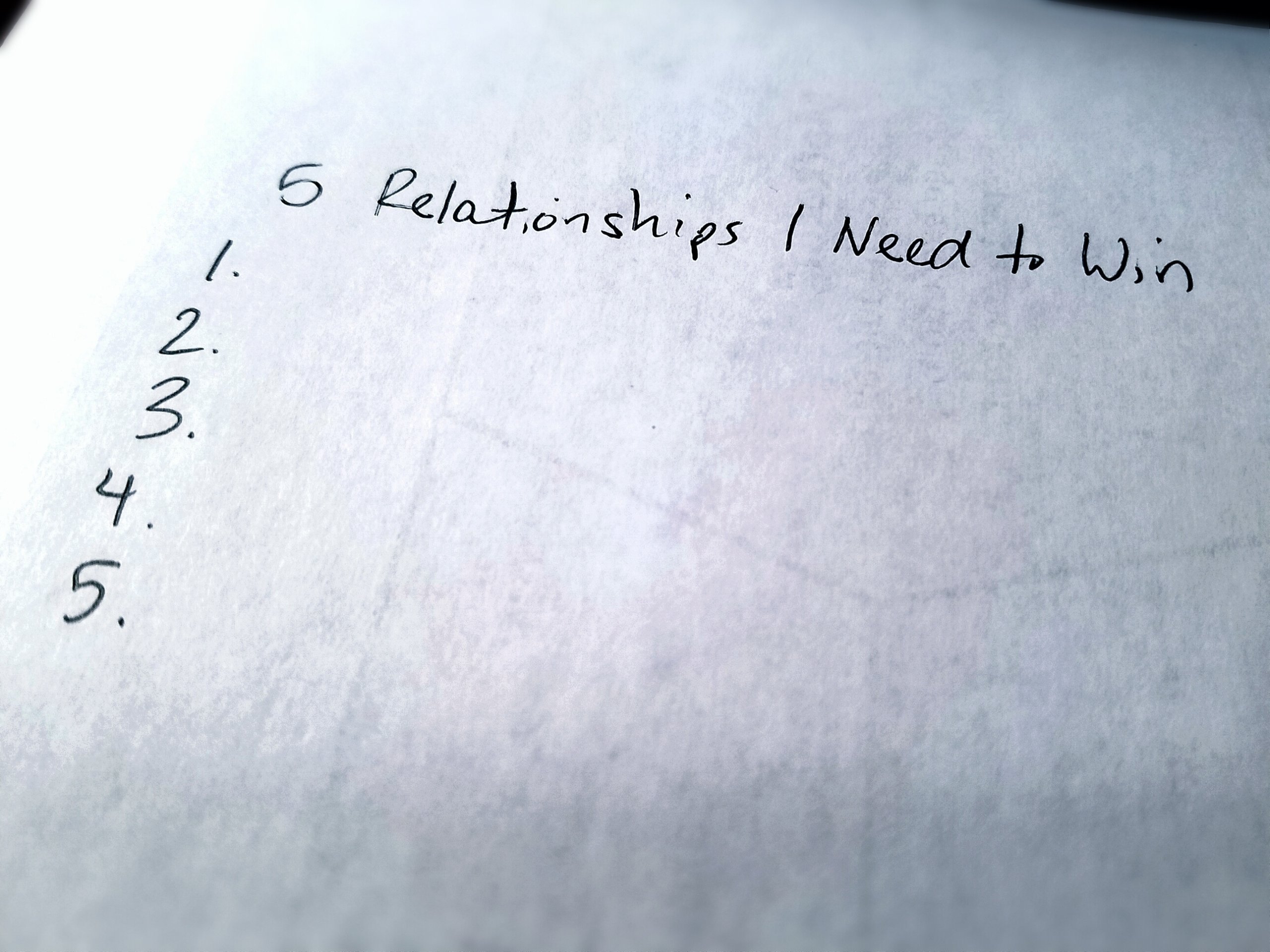 Maya Angelou has said, “The desire to reach for the stars is ambitious. The desire to reach hearts is wise.”
Maya Angelou has said, “The desire to reach for the stars is ambitious. The desire to reach hearts is wise.”
I believe the two are connected. You can’t reach your stars without reaching hearts in your relationships.
Several years ago, I was facilitating a discussion in a room of 30 CEOs. I asked them to take out a piece of paper and list the five most critical relationships they needed to have in order for them to “win big” in their roles. Restricting their lists to just five meant they had to decide which relationships mattered the most to help them be successful. Many of those relationships were not surprising; the Chairman of the Board, the largest customer, the head of Human Resources. I was glad to see “my executive assistant” on a few of those lists.
Next, I asked them to subjectively “score” these relationships.
“Jot down a value next to that relationship on a scale from 1-5, with a 5 representing someone that you know so well, and trust so deeply, that you know what they are saying about you when you are not in the room.”
Then, for all of those that are rated 3 or below, I asked them to list a reason why that relationship was not yet a 5. (I was presuming that they would get there, over time.)
I asked them to share their scores with a raise of their hand. “How many of you have all five of your critical relationships with a 4 or 5 rating?” Not a single hand went up. “How many of you have three of your five relationships with a 4 or 5 rating?” About half the hands went up. At this point, I was thinking that this was going to be a disastrous exercise. So I asked the group, “Why do you think that the five most critical relationships that you have listed on your paper aren’t all 4s or 5s?”
“Just because I am the CEO, doesn’t mean that relationships just happen. I have to be intentional about my part in making that relationship strong.”
This eye-opening exercise became a very robust discussion for the next 40 minutes. The CEOs shared several fundamental approaches to building those relationships – approaches that they intuitively knew, but had not put into action. The focus on the scorecard made them actively think about that person and what they needed to do to advance the relationship.
So the first lesson? Start with Awareness. Relationships involve people, and dealing with people is not an exact science. Through this discussion with the CEOs, we distilled the relationship shortcomings into two categories: those that needed to be cultivated because they were new, or had not been given enough focus; and those relationships that were rocky and not working.
Not surprising for this group of problem-solvers, they began to focus on fixing the rocky relationships. Three areas emerged as common problems in work relationships:
- People’s perceptions of you precede you. Before you even arrive in your new role or location, aspects of your reputation are shared with the new team. The positive aspects still have to be proven through words and actions, but the negative ones are assumed until they are corrected;
- Long-standing misunderstandings and differences can fester. You can sometimes be at fault when you make assumptions about what others meant, or intended, or felt in a certain situation. Those assumptions can color your thinking and your perceptions. It’s very easy to play the blame game and lay fault on the other person. The relationship spirals downward from there and just gets worse over time;
- You don’t want to know each other. Like it or not, sometimes you have to work with a person you just don’t like. There may be no rational reason behind your feelings. It could be a physical attribute that reminds you of someone you didn’t like before. Or maybe you find their style irritating. Whatever the reason, you convince yourself that you just don’t want to know them, and therefore, do not engage.
When you intentionally address the mistaken perceptions, hidden assumptions, and inexplicable dislikes in your “difficult” work relationships, you clear these elephants from the room. You make everyone more comfortable and create space for much better understanding and much easier collaboration.
I encourage you to start 2017 with some simple awareness. If you want the greatest possible outcome of success in your role as a leader, start with awareness for your five most critical relationships. But don’t stop with just understanding which of those need work.
Your role as a leader requires you to relate to others in such a way that helps — not hinders — the success of the business. It starts with awareness, but it goes nowhere unless you are intentional with your actions to make a change. You need to get to the “hearts” of your relationships, and that means you need to be intentional about it every single day.
